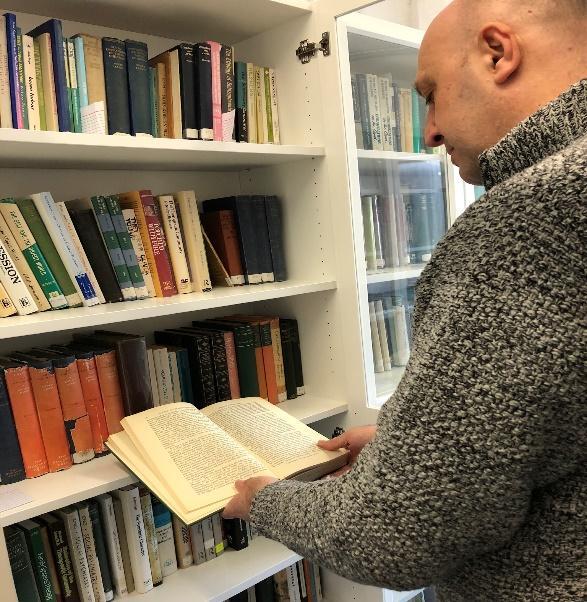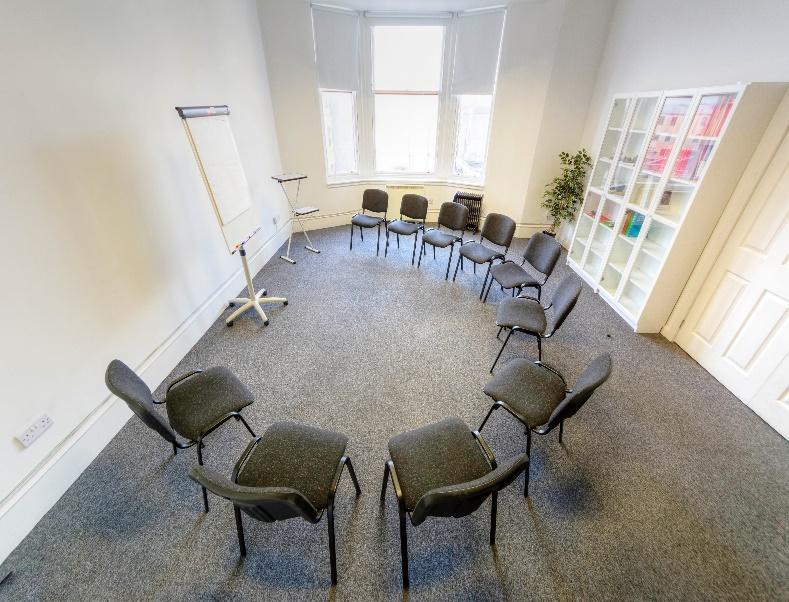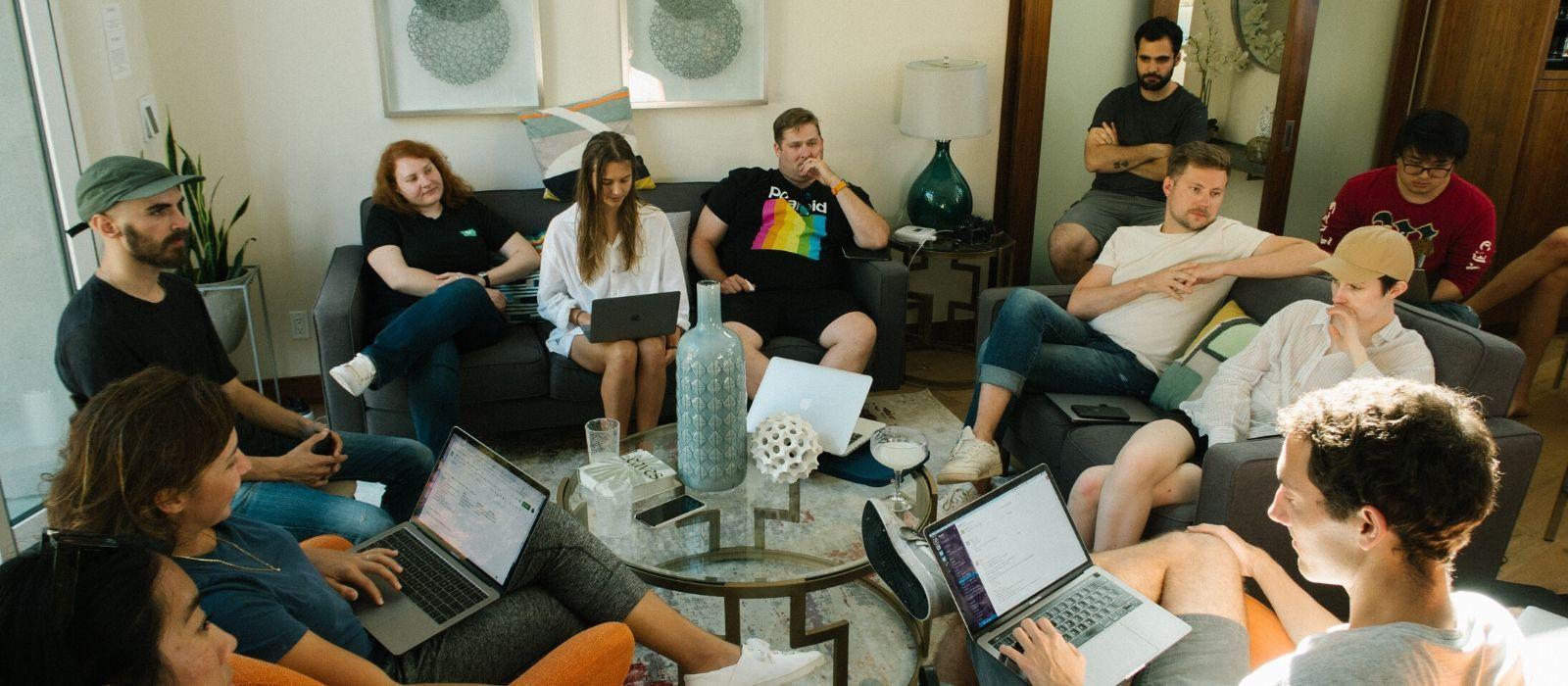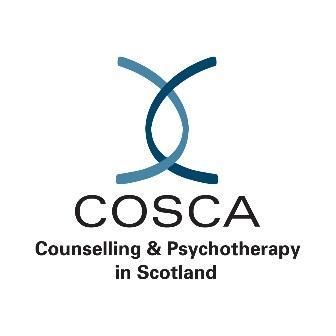




HDS is a not-for-profit organisation and our mission is to relieve mental and emotional distress by increasing the availability of, and access to, high quality psychodynamic and psychoanalytic counselling and psychotherapy for all who need them.
Our objectives are to improve health and social care professionals’ understanding of, and ability to apply, psychodynamic ways of thinking; and to reduce mental distress by delivering psychodynamic counselling and psychoanalytic psychotherapy to the public.
We offer the following:
A range of professional training courses leading to academic qualifications.
Short courses that can form part of a training escalator for professionals.
CPD events including conferences, workshops and seminars.
Counselling and psychotherapy directly to individuals and families, and as part of employee assistance programmes.
At the heart of all our work are the psychodynamic, psychoanalytic and systemic ideas that offer a profound understanding of how people relate to one another and the central role of human relationships in our mental health and emotional wellbeing.
Hundreds of professionals have been equipped by HDS and have used the experience in their work as teachers, social workers and in other ‘people-facing’ professions, for example. Some have shared their experience by returning to teach on our courses, contributed to our conferences and events, and by publishing books and papers.
We wish you all the best in your pursuit of developing your career and hope that you choose HDS to help you further your knowledge and skills.
To keep up to date with our news, information about our academic training and latest events, subscribe to the HDS Newsletter. Sign-up on our website www.hds.scot
HDS offers a range of professional and academic training courses, short courses and continuing professional development (CPD) opportunities.
Our training is for people working in ‘people-facing’ professions. For example: health and social care services, teachers, third sector and private practice counselling.
Our training courses for professionals translate the psychodynamic, psychoanalytic and systemic ideas, on which all our works is based, into practical tools for understanding the central role that human relationships play in our mental health and emotional wellbeing.
For example, our Child and Adolescent Psychoanalytic Psychotherapy (CAP) programme is a practical and theoretical training course in psychoanalytical psychotherapy with children and young people. This course is the only one in Scotland which is approved by the Association of Child Psychotherapists (ACP)
Hundreds of professionals have been equipped by HDS and have used the experience in their work as teachers, social workers and in other ‘people-facing’ professions, for example. Some have shared their experience by returning to teach on our courses, contributed to our conferences and events, and by publishing books and papers.
We believe our professional training will help to relieve mental and emotional distress by increasing the availability of, an access to, high quality psychodynamic and psychoanalytic counselling and psychotherapy for all who need them.

The ‘psychodynamic’ approach in counselling and psychotherapy is based on awareness of the importance of early relational experience on us as adults and how this influences us at an unconscious level, at the level of feelings, which powerfully underpin our sense of self. The evidence gained through neuroscientific research strongly supports this perspective.
We grow and develop throughout life, in and through our relationships, and better understanding of these, and a greater sense of personal autonomy, are key aims of this approach.

Psychodynamic approaches, in contrast to many other types of help, support individuals to go beyond self knowledge which is consciously available to them, and supports these individuals to address difficult and painful issues which they have been (unconsciously) hiding from themselves.
Treatments and interventions for mental ill health come in many different forms. Most have a conventionally scientific approach to problem solving. They have a tendency to objectify the problem to be solved and respond according to what type of problem it turns out to be.
The goal of most of these treatments is relief from psychological pain. These are the types of help most commonly available through the NHS. They do work, but not for everyone, and sometimes the benefits are only temporary. Psychodynamic approaches are different. They have a very different focus and way of helping an individual. Firstly there is a recognition that we are all different and the uniqueness of the individual seeking help is the starting point for therapy. Secondly the ongoing focus through therapy is the unique subjective experience and sense of self of the individual. Thirdly, the goal is enhanced self knowledge; and long term healing and personal growth.
Find out more about the psychodynamic approach on our website
HDS was formed to carry on the work of the Scottish Institute of Human Relations (SIHR), established by Dr John (Jock) Sutherland and others in 1971 with the aim of expanding the application of psychodynamic thought in Scotland.
We offer the training and services previously delivered by the SIHR. These have at their heart the psychodynamic, psychoanalytic and systemic ideas that offer a profound understanding of how people relate to one another.

Hundreds of professionals have been equipped by HDS and have used the experience in their work as teachers, social workers and in other ‘people-facing’ professions, for example. Some have shared their experience by returning to teach on our courses, contributed to our conferences and events, and by publishing books and papers.
We believe our professional training will help to relieve mental and emotional distress by increasing the availability of, an access to, high quality psychodynamic and psychoanalytic counselling and psychotherapy for all who need them.
Our Child and Adolescent Psychoanalytic Psychotherapy (CAP) programme, for example, is a practical and theoretical training course in psychoanalytical psychotherapy with children and young people. This course is the only one in Scotland which is approved by the Association of Child Psychotherapists (ACP)

HDS is located in central Glasgow. We have a Training Suite where some of our teaching takes place. Our dedicated library for students provides access to resources that help students with assignments and further study.


Welcome to the post-qualifying Certificate in Counselling Children, Young People and Families (CYPF) This part-time training programme designed to prepare practitioners to work with children, young adults (up to mid-20s) and their families and is taught from a psychodynamic perspective.
This Certificate enables practitioners to engage with contemporary debates in the field of child and adolescence with an emphasis in modules 2 and 3 on counselling in a variety of settings including schools, voluntary and statutory sector organisations, universities and colleges, primary and secondary care settings, as well as in private practice.
Module 1 can be taken as standalone CPD for anyone interested in learning and understanding more about children, adolescents and young adults. It is a good introduction to psychodynamic thought and how that can be applied in a variety of contexts e.g. schools, voluntary sector organisations.
This Certificate (modules 1,2 and 3) prepares Counsellors to work safely and confidently with mild to moderate concerns. For those practitioners (e.g. Counsellors, Nurses, OTs, Psychologists, Social Workers) working in CAMHS or equivalent, consideration should be given to the Masters in Psychoanalytic Observation and Reflective Practice: Therapeutic Work With Children and Young People (TWCYP)

Practising Counsellors with a Diploma/PG Diploma in Counselling and who would like to develop their work in schools, colleges and universities.
Individuals working with children, adolescents, young people and families and who are interested in learning more about psychodynamic processes. (Module 1 only)
Counsellors who have completed a Certificate in CYP and would like to develop work with the families of the children they Counsel. (Module 3 only)
Counselling Children, Young People and Families
Programme structure
The Certificate is comprised of three modules (see below) and classes generally meet from 0930 to 1700 at weekends usually one weekend a month across 6 months.
The requirement for approximately 70 hours of supervised practice in modules 2 and 3 may require students to continue with placement beyond the timescales indicated above.
The Certificate is comprised of three modules:
1. Human Development: Childhood to Young Adult
2. Theory and Practice of Counselling Children, Adolescents and Young Adults
3. Theory and Practice of Working with Families
Each module runs under a blended learning format of student-centred learning activities such as experiential workshops incorporating the psychodynamic theoretical approaches supported by Moodle based resources and skills-based framework.
Teaching and learning consists of 24 hours of teaching supported by 36 hours of individual independent learning, practice and written assessments per module. Participants must successfully complete all three modules to be awarded the Certificate.
Programme curriculum
• Child, adolescent and young adult development, Theory of Mind, Attachment Theory, developmental trauma, understanding self in relation to others in a Social World.
• The theoretical background to therapeutic play and other methods of engagement including skills-based exercises.
• Safeguarding, legal and ethical issues involved in working with children, adolescents, young adults and families.
• Self-care and Recovery.
Progression routes
• Module 1 can be taken as stand-alone CPD.
• Module 3 can be taken as an additional module for those who have completed a Certificate for Counselling Children and Young People at a different University/organisation.
Award
A Post Graduate Certificate (PGCert) in Counselling Children, Young People and Families is awarded on completion of the course
The course has full professional validation by COSCA (Counselling & Psychotherapy in Scotland) and in line with all of our courses it has been written to meet the academic requirements of Scottish Universities at SCQF level 11.

The aims of the course are:
• To equip students with a knowledge base to critically engage with the dominant paradigms of mental health and emotional wellbeing in their work with this specialist client group.
• To prepare for engaging in multidisciplinary collaboration
• To prepare students to become practicing Counsellors who work sensitively, competently and ethically with children, adolescents, young adults and families.
• To support students in developing a familiarity with the range of social, cultural and religious contexts from which children, adolescents, young adults and their families may be drawn, so that they may acquire competence as a professional and culturally sensitive Counsellor with children, adolescents, young adults and their families.
• To facilitate and develop students’ awareness of the ethical principles and personal qualities required to practice as a Counsellor with this client group.
• To prepare students to be developmentally sensitive and responsive in all aspects of their contact with children, adolescents, young adults and their families and to have an understanding of the potential of every child, adolescent and young adult to reach their full capacity.
• To further develop students’ capacity to use clinical supervision to support competent reflexive and ethical practice and professional development.

A diverse range of learning and teaching strategies are employed to create an enabling environment for this professional course. This will include the use seminars, facilitated group discussion, case studies, Moodle based resources, case discussion based on experiential exercises and personal tutor support.
Counselling Children, Young People and Families
• A negotiated essay on a related topic
• Case studies
The general learning outcomes of the course are:
• To demonstrate understanding of and capacity to utilise psychodynamic theories of human development, with a specific focus on child, adolescent and young adult development and the family as a group.
• To work and communicate therapeutically with children, adolescents and young adults and their families.
• To recognise common mental health problems in children, adolescents and young adults and to know when it is appropriate to refer to other specialist provision.
• To use psychodynamic theory to assess and make recommendations to families and other professionals.
• To understand the importance of entering into an age appropriate contract with each individual child, adolescent and young adult.
• To monitor outcomes and use outcomes to inform practice.
• To create a blend of knowledge, practical experience and relevance.
• To understand and apply legal and ethical frameworks in practice with children young adults and families.
• To recognise and understand child protection and vulnerable adult issues and apply the relevant legislation and procedures where appropriate.
• To be confident in working with other professionals in a variety of common settings and contexts.
• To be aware of the impact of social, cultural and religious influences on children and you and of the expectations of families and communities.
• To understand their duties and responsibilities around the collection and storage of data.
• To reflect on personal growth and development and to use supervision and personal therapy to support that growth and development.
Entry requirements
Applicants should meet the following requirements:
• For module 1, 2 and 3 (PGCert): a Post Graduate Diploma in Counselling (any theoretical basis).
• For module 1 (taken as standalone CPD): appropriate current professional qualification (Teachers, Nursery Nurses, Social Workers, Youth Workers etc.) to support employability and career development in therapeutic work.
• For module 3 (taken as an add on to a Certificate in Counselling CYP): Post Graduate Diploma In Counselling (any theoretical basis) and a Certificate in Counselling Children and Young People (any theoretical basis).
Costs
For the latest information about fees, please visit our website: www.hds.scot
Course fees are reviewed annually. They will usually increase in line with inflation and reflect any increase in university accreditation/registration fees
Enquiries & Application
If you have any questions about the programme, please email: courses@hds.scot or call us on 0141 331 2419.
Application forms are located on our website: www.hds.scot where you will also find the latest information about application deadline dates and interview dates.

HDS is not able to offer funded places for the Certificate in Counselling Children, Young People and Families . Possible sources of funding are:
The Sutherland Trust - www.sutherlandtrust.org.uk
The Sutherland Trust exists to stimulate thinking about psychodynamic approaches to health, social care and education.
The Guntrip Trust - www.guntriptrust.com
The Trust offers financial support to people in religious vocations.
The Glasgow Educational and Marshall Trust – www.gemt.org.uk
The Trust supports individuals who have lived in the city of Glasgow for at least 5 years.
Funding Scotland – www.funding.scot
A directory of grant giving bodies dealing mainly with organisations but some may award grants to individuals.
FindAMasters funding guide www.findamasters.com/funding/guides/postgraduate-loans-scotland.aspx
FindAMasters is a directory of Masters degrees and postgraduate qualifications at universities around the world.
Your employer
Students’ employers often contribute to fees. Each employer will have their own process for applying for support. Speak to your manager or HR department.
For more information on funding, please visit our website: www.hds.scot/funding

At HDS, all our courses are evaluated on a regular basis and the feedback helps us to maintain a high quality of teaching.
The teaching staff at HDS have a variety of backgrounds and experience which provide a rich blend of teaching styles and different perspectives to help our students.
Find out more about our teaching staff on our website
Our courses have full professional validation by COSCA (Counselling & Psychotherapy in Scotland).


Course enquiries
Website www.hds.scot
Email courses@hds.scot
Telephone 0141 331 2419
Stay connected
Twitter @HDScotland
Facebook @HDScotland
LinkedIn Human Development Scotland
Write to us
Victoria Chambers, 142 West Nile Street, Glasgow G1 2RQ
To keep up to date with our news, information about our academic training and latest events subscribe to the HDS Newsletter.
Sign-up on our website: www.hds.scot

A Scottish Charitable Incorporated Organisation Charity No. SC043664
Registered office: Victoria Chambers, 142 West Nile Street, Glasgow G1 2RQ
0141 331 2419 I www.hds.scot
We are a charity that exists to improve mental health and emotional wellbeing in Scotland
PROFESSIONAL TRAINING I CPD I COUNSELLING AND PSYCHOTHERAPY SERVICE Copyright Human Development Scotland